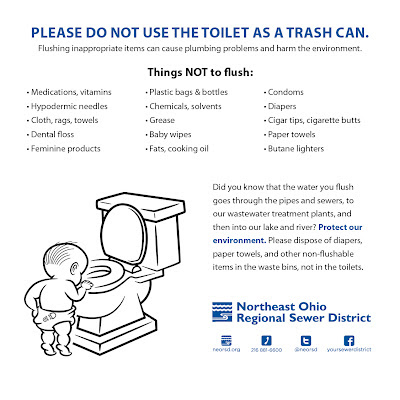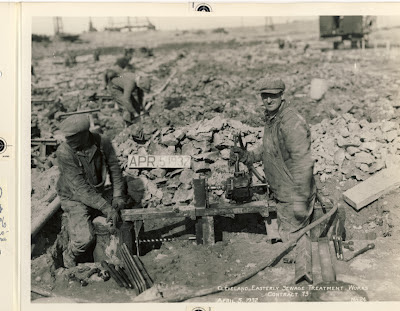
VIDEO: Flushable wipes maybe not so much
Posted by Jared Shepherd
- 4357 Views
- August 9th, 2012
- in Miscellaneous
- No Comments
Are flushable wipes really flushable? Perhaps for convenience, but they are not without problems beyond the drain.
Our friends at the National Association of Clean Water Agencies posted a link on their Facebook page about a city in Canada facing significant wastewater-treatment process issues because flushable diapers and wipes are not breaking down. The only thing breaking down is their equipment.
I asked our Southerly Wastewater Treatment Center maintenance manager and our assistant superintendent if this is a localized problem or if we experience the same problems in our processes. Kevin Zebrowski answered it’s a little bit of both.
“The disposable wipes can be an issue as they do not breakup or dissolve in the collection system,” said the Southerly Assistant Superintendent. He is close to the maintenance teams and sees what they are experiencing.
The flushable wipes are “small enough to make it through our screens”—bar screens act like sieves to catch large floatable debris coming into the plant so it does not damage equipment. “Therefore, smaller plants [perhaps like the one in the clip above] would have issues with [remnants of diapers and wipes] blocking their bar screens and clogging grinders earlier in the process.”
Southerly is one of the largest treatment plants of its kind in the country. “Due to our size, thus large screen openings, we have similar problems but further downstream,” he explained. “We have more issues with the tank drainage pumps getting blocked. We start to see the issues develop in our degritting process or our gravity thickening process. This then can block up our pumps at this stage —again, a different style of pump that is not as forgiving.”
Most of these processes are outlined in a video we produced several years ago:
Tour a wastewater treatment plant in seven minutes from Wally Waterdrop on Vimeo.
Maintenance Manager Hugh Sullivan added that in Northeast Ohio, institutions like hospitals and prisons are required to have “macerators”—basically waste grinders—installed as pretreatment requirements before their waste enters the local sewer system. Such equipment breaks products like flushable wipes and diapers down early before they reach the treatment plant.
Our crews have very stringent preventative-maintenance procedures to avoid breakdowns and reduce equipment downtime. “The headworks equipment [the screens where wastewater enters the plant] has been in operation here for 30 years,” said Zebrowski. A mechanic is stationed at that building around the clock so immediate adjustments and repairs can be made as needed.
However, we make several recommendations to customers about what they should avoid flushing. Here’s a list:


